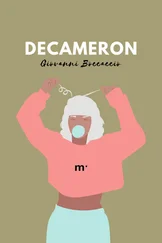We got to work replacing the sockets. Granddad wasn’t a licensed electrician, but I always got the sense that he knew exactly what he was doing. My stepfather shared my confidence, although my mother was a little leery.
“Your father’s recovering from major surgery, Elvin,” I remember her saying to my stepfather. “He probably needs three or four more months’ rest. Maybe this isn’t the best time for him to be undertaking a major renovation project.”
But Mama was outvoted. Dad wanted me to spend the summer with my step-grandfather, and Granddad certainly appreciated the help. We were a team. And we got along pretty well. And even though I was only thirteen, I knew exactly what I wanted to do with the rest of my life. I wanted to go into construction — to be a building contractor. It was important for me to know how houses got put together, from the roofing and the dry wall all the way down to the sockets and the wiring, the mounting straps and threaded nipples.
Today we were rewiring the dining room chandelier. Tomorrow we’d be laying a frame for a new concrete driveway.
Granddad had bought this old house and the acreage around it for a song. Houses used to be pretty cheap in out-of-the-way hamlets like Windom, Texas. (I suspect they probably still are.) But even so, it was a point of great contention between my step-grandparents over whether they should make the purchase. And whether, ultimately, they’d both end up living there.
Granddad didn’t say much about all that. In those pre-slumber, lights-out conversations from our cots in the still-unfinished bedroom, we talked about the Texas Rangers (both the baseball team and the law enforcement agency — Granddad’s brother was a Texas Ranger of the gun-toting variety) — and we talked about trucks. Oh, how he loved his 197 °C/1 °Chevy pickup. Medium gold and white — a real Texas workhorse. We talked about how he’d grown up in Fannin County and about how much he was looking forward to moving back after “way too many years in Big D.”
“When the Ewings and all those Hollywood people moved in, I knew it was high time your grandmother and I got the hell out.”
I hadn’t known my stepdad’s father very well. I was told to call him Granddad, and I did. Not having any other grandfather, I had no problem with that. But it wasn’t until the two of us started our summer-long construction project that I really began to feel the way a kid is supposed to feel about his family elders. And while I guess you could say it was still in many ways the best summer I would ever spend, it was not without a few wrinkles.
The doctors had carved out the cancer, but Granddad still wasn’t a healthy man by any definition. Sometimes a good part of his day would be spent trying to get his mind off the discomfort in his throat. I didn’t ask about his prognosis. I just assumed he wouldn’t have had the surgery if the doctors didn’t plan for him to be around a while longer. And on top of that, I figured he wouldn’t have been going to all the trouble of renovating a house and bugging my grandma to come live with him in it if he thought his number was nearly up.
The other wrinkle was that he slept with a loaded gun under his cot. (“A house out in the country like this — you never know who might come prowling around of a night.”) This was something I never got used to. In fact, on our first night together Granddad told me I was supposed to wake him up when I had to go to the bathroom, or else he might hear me rustling around, shoot first and ask questions later.
I’d generally hold my pee for the whole night.
I came well stocked with comic books and car magazines, and we had the transistor radio, and I can tell you to this day all the songs that got the most airplay that summer. George Jones’ “He Stopped Loving Her Today,” Charley Pride’s “You Win Again,” and Mickey Gilley’s cover of “Stand By Me” come right to mind. And Granddad had this honky-tonk station he liked that played the really old twangy stuff that made me think of grizzled men in dirty boots and goat-roper hats wailing through their tobacco chaws.
Sweet Jesus, I never forgot for a minute that I lived in Texas!
But there was something about my adoptive grandfather that I wouldn’t come to realize until long after he’d died. And despite his best hopes, the good Lord only gave him another year and a half. That came out to about thirteen months my grandmother had to live in this house Granddad and I put together, far from all of her friends and civilization as she knew it. And it was this: The old man wanted to spend what time he had left in close communion with that place where he grew up. He showed me once where the little ranch house had stood, only about six or seven miles away. He was born there, he said, in a spot now reclaimed by weed and mesquite. This is where his roots were, where he remembered being happy as a boy.
And it’s where Grandma got him buried.
Like I said, I didn’t know this until after he’d died, the part about why it was he wanted to renovate this old house. I probably could have figured it out. If I’d pointed my brain in the right direction. But I was too busy getting my education.
Granddad let me fold the wire connections into the wiring compartment and screw the cover back on. While he held the chandelier, I tightened the mounting strap to the ceiling box and gently folded the wires into place. I slid the canopy up the stem, making sure that it pushed flat against the ceiling. Then I tightened the screws to secure it. We put in the new bulbs and reattached the shades, and he let me flip the switch at the fuse box. I left to him the honor of turning on the light at the wall switch. Even though it was early afternoon and there was sunshine coming in from both of the windows, the room became flooded with light. It was a warm light with a sweet yellow cast, and we did as we always did when we finished another stage in our summer-long project: we shook hands. Smooth palm to callused palm. He was my grandfather — not by blood, but certainly by heart. And I was the grandson he had never had.
After admiring our handiwork for another minute or so, we climbed into the cab of his Chevy pickup and headed to LuAnne’s for a grilled cheese and a Grape Nehi.
I can still taste it.
1981 SELF-ANOINTED ABOVE, LET’S SAY, OKLAHOMA
It was the first time I’d ever flown First Class.
And the only time.
There are First Class people, and there are Coach people. Coach people are the great unwashed multitudes of us — young, old, poor, rich (because sometimes First Class gets filled up, and Reginald Kensington, Esq. and his wife Boopsy are denied, by circumstances, their caviar and champagne, and must eat peasant peanuts and drink populist pop with all the rest of us). First Class people aren’t just people with money, they’re also people with attitude. They’re flying on the magic carpet of luxury because God has so ordained it.
I remember once being stopped right at the end of the jetway by a flight attendant who had suspended the boarding process until after all of her First Class passengers had gotten their pre-flight apéritifs. I wrote the airline to complain about this assault on democracy. I told them I was never going to fly them again. But of course I did.
And I flew in Coach. Always Coach, except for that one flight on April 15, 1981.
I was flying back to Cincinnati after having just completed an interview with American Airlines at their headquarters in Dallas. I don’t know how things were before or after, but for a period of several years in the late seventies and early eighties, American Airlines jump-seated hundreds, perhaps thousands, of flight attendant applicants from all over the country for the purpose of preliminary group interviews — the only step in the multi-step interview process that I made it through. I thought I’d interviewed well. I contributed to the group “conversation” as well as any of the other girls and the three or four boys who hoped to begin careers in “in-flight customer care.” I felt that I had said all the things I was expected to say — all the things that should have moved me along to the next stage in the interview process. (Word to all future flight attendant hopefuls: The most important responsibility of a flight attendant isn’t making passengers comfortable — it’s keeping them safe.)
Читать дальше












